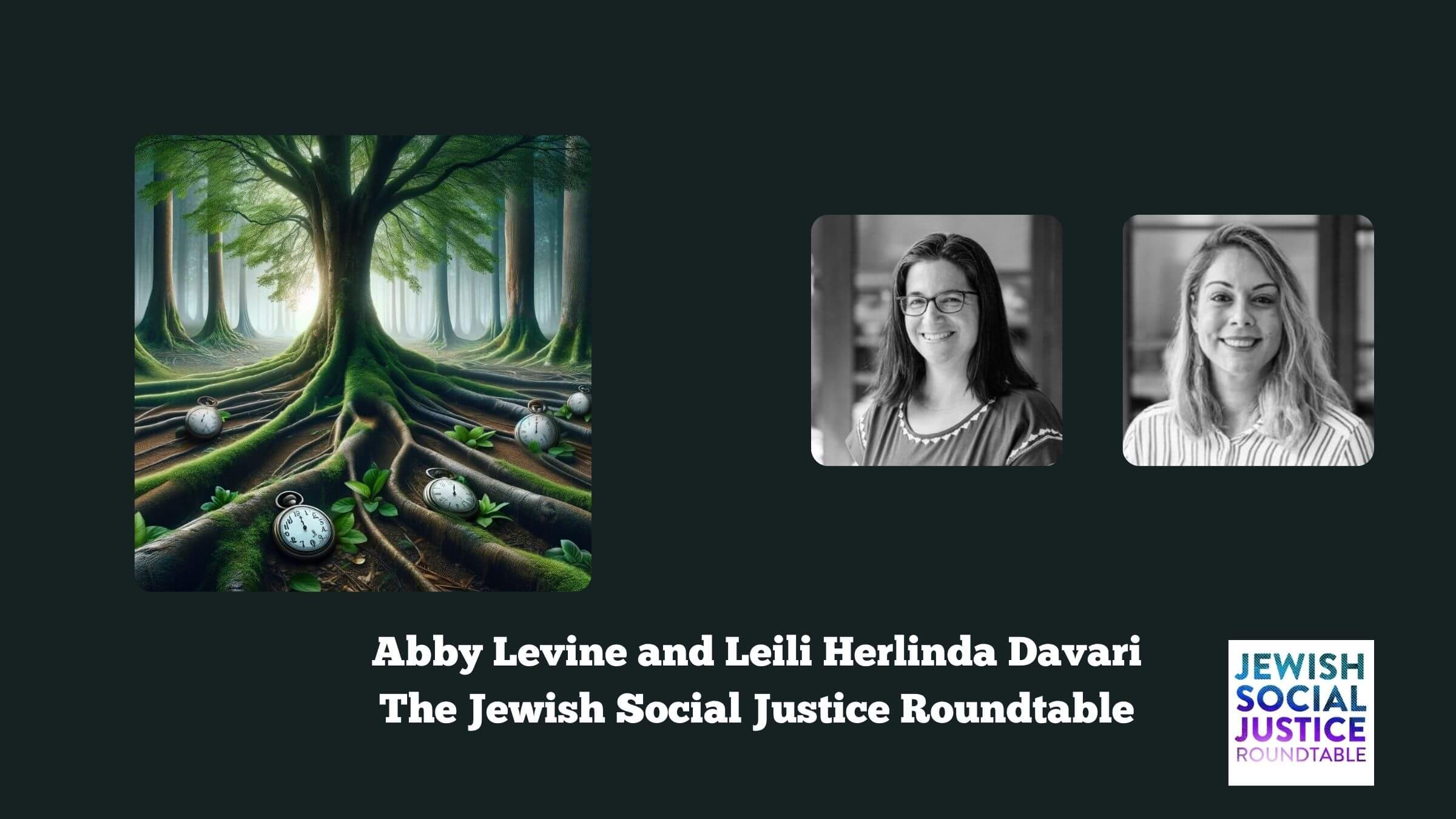Both/And Thinking all Around: What are we Seeing in the Field
Conflicting stories can be true at the same time.

As Jewish leaders, every conversation we have these days relies on ‘both/and’ thinking — elu v’elu, meaning that multiple, conflicting stories can be true at the same time. We all need to practice elu v’elu even — especially — when it might feel challenging or impossible to see beyond our pain. Practicing elu v’elu was hard before October 7th. Now it can sometimes feel impossible, leading some Jews to wonder: What is my role within equity work?
To deepen our thinking, Leili talked to Jewish leaders of Color who live and breathe this work: Jackie Baldwin, Director of Anti Racism and Equity, Jewish Council on Urban Affairs; kristen kendrick, VP of Diversity, Equity, Inclusion and Racial Justice, American Jewish World Service; and Rabbi Sandra Lawson, Director of Racial Diversity, Equity, and Inclusion, Reconstructing Judaism.
We talked through equal parts tears and laughter and sometimes both at once. In a time of intense polarization, when we are often faced with the dynamics of ‘us’ vs. ‘them,’ these conversations helped clarify our thinking and chart a productive path forward.
Here are three insights about the work on racial diversity, equity, and inclusion in the Jewish social justice field.
- The tension between antisemitism and racial equity work is not new and it has intensified since Oct 7th. Jackie shared, “It was difficult before. It has felt like carrying the anchor of the Titanic ever since.” This tension has exploded into an ongoing critique that some DEI frameworks have excluded antisemitism or perpetuated antisemitic tropes such as positioning Jews as oppressors in the binary of oppressed vs. oppressor. This has left some Jews, white and JOC alike, feeling isolated, attacked, and erased. Meanwhile other Jews, white and JOC alike, are refusing to allow these critiques to derail their commitment to racial equity, and are doubling-down on the learning needed in the DEI field around antisemitism. Wherever you find yourself in this conversation is not the purpose here — what matters is that because there is liberation work ahead of us all, we need to talk honestly, with compassion, and with nuance across differences.
- Notice when efforts are trying to divide us, and choose to stay in dialogue. Sandra shared, we need to “get used to having disagreements — and staying connected anyways.” We can’t let ourselves be divided from natural allies for equity and against antisemitism. As kristen reminded us, “equity is not zero-sum — there is enough liberation for everyone.”
- Tools exist to communicate across differences. In 2023, the Jewish Social Justice Roundtable launched trainings to communicate effectively through conflict. Two useful skills are: 1) Listen with empathy: hear beyond the words someone says and seek to identify the emotions. 2) Two tracks: Notice when one conversation splits into two because each person is addressing a different topic. The key is to acknowledge the different needs and agree to have separate conversations for each.
These insights were exactly what we needed. Differences in how Jews approach equity are real, because we Jews are not a monolith. We can only realize the promise and possibility of equity by working through tensions and staying engaged, especially when the work feels hard. May we continue to champion a liberation that includes us all — elu v’elu — as we build a shared future together.
“Moving Through the Wilderness: Recommitting to Equity After 10/7” is a collection of brief essays born out of Elevate: An Executive Leadership Equity Accelerator. Elevate launched in May 2023 and its first cohort consisted of eleven CEOs of influential Jewish institutions, who are committed to the Jewish value and responsibility of equity within our community. The idea for this project emerged in Montgomery, Alabama during one of Elevate’s in-person convenings in early 2024. To learn more about Elevate and the program’s co-founders and leaders, Gamal J. Palmer and Catherine Bell, click here.
Moving Through the Wilderness is presented in partnership with the Forward, the leading voice in Jewish journalism. Read more essays in the collection.












